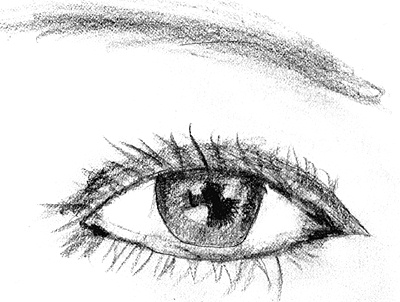All Nonfiction
- Bullying
- Books
- Academic
- Author Interviews
- Celebrity interviews
- College Articles
- College Essays
- Educator of the Year
- Heroes
- Interviews
- Memoir
- Personal Experience
- Sports
- Travel & Culture
All Opinions
- Bullying
- Current Events / Politics
- Discrimination
- Drugs / Alcohol / Smoking
- Entertainment / Celebrities
- Environment
- Love / Relationships
- Movies / Music / TV
- Pop Culture / Trends
- School / College
- Social Issues / Civics
- Spirituality / Religion
- Sports / Hobbies
All Hot Topics
- Bullying
- Community Service
- Environment
- Health
- Letters to the Editor
- Pride & Prejudice
- What Matters
- Back
Summer Guide
- Program Links
- Program Reviews
- Back
College Guide
- College Links
- College Reviews
- College Essays
- College Articles
- Back
Theft versus Indifference
Albert Einstein once said, “The world will not be destroyed by those who do evil, but by those who watch them without doing anything.” Many hold the belief that theft is a greater offence than indifference. Redistributive theft is the practice of lessening inequalities, particularly in the aspect of wealth. It is seen as horrible because it is illegal, contains negative consequences, and is undemocratic. However, a minority view indifference as a worse crime to society than theft because expressing no concern or emotion for others is considered inhumane.
What exactly defines indifference? Etymologically, it is the quality of being neither good nor bad, so it is a neutral perspective. Neither side is taken in a dispute or personal affairs. Indifference is even more tempting than theft to a certain extent. It is easier to avoid victims of bullying, annoyances, and interruptions to work. Indifference allows an alternate escape path from the uncomfortable confrontation of another’s pain and despair. In one of America’s most prestigious rhetorics, The Perils of Indifference, Elie Wiesel states the issues and dangers of indifference. He discusses of the tragedy of St. Louis in 1939. One thousand Jews were turned back to Nazi Germany by Franklin Roosevelt. This decision was made after the horrifying atrocity of Kristallnacht. Roosevelt understood that there were people who needed help. Still, he did not allow the Jewish attempting to escape from persecution to disembark in the United States. Many judge Roosevelt to be an exceptional and passionate man who positively transformed the nation, but this demonstrates how an honorable and moral individual can also exhibit the actions of a cruel, selfish, and indifferent leader. Indifference to the most severe level causes others to suffer - in this case, the victims of Kristallnacht. Such indifference for humans creates inhumanity.
It seems that no one is satisfied with the actual distribution of property and riches in current society. Egalitarians hold the belief that the rich have too much, resulting in the poor having too little. Libertarians believe that the history of existing property rights is evidently obtained by force and fraud. Even though theft may be an attempt to balance inequality in society, but it is wrong. An offender robs possessions that is not rightfully theirs. This is taught at a very early stage in life, in families of all political views and persuasions. The consequences and negative results of thievery are overwhelming. In the state of California, the maximum penalties for most first-time petty theft convictions are a fine of up to one thousand dollars, up to six months in county jail, or both. Some think that theft brings society a little closer to a just distribution. Even when distributive equality is achieved, without democratic authorization, people in a society are still not equals. This is because there is no consensus that distributive justice demands distributive equality. Society clearly expresses its distaste of theft but valuables are replaceable and personal dignity is not.
Yet what harms a society more? Taking away its valuables, wealth, and possessions, or depriving it of consciousness and compassion? Both actions are unacceptable to society, but treasures are merely worldly possessions and emotions are intangible. Theft specifically affects individuals but indifference can plague entire communities and groups of people. This can vary from different racial groups to socioeconomic classes. For example, the Syrian refugee crisis right now tugs at our humanity to respond; however, outside of a few nations, the response from many governments has been one of apathy - just like during the aftermath of Kristallnacht in World War 2. We do not act as if the refugees needing our help are people just like us, and instead we have chosen to be indifferent to their plight. This indifference leads to them suffering as much, if not even more so, as one who has had something stolen from him. We act as though an entire group of people are not worth our compassion and help, and this strips them of their humanity - a far worse consequence than losing a material possession. I have been a victim of both theft and indifference. I can definitely say that being preyed upon by the indifference of others feels much more devastating. No one wants to experience the feeling that nobody cares or even wants to acknowledge their existence. It strips away security and hope. Perhaps theft is a wrong action to a just society, but indifference is the silent decay of humanity.

Similar Articles
JOIN THE DISCUSSION
This article has 1 comment.

1 article 0 photos 1 comment